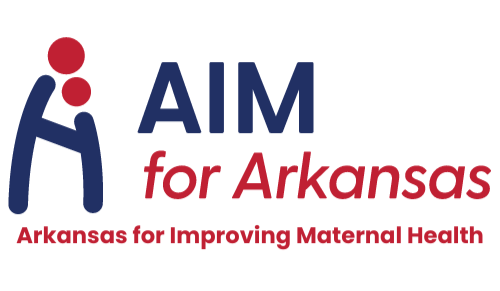
Mom-First Policies
Why Economic Security Matters:
A Letter from Ashley
When my daughter Aubrey was born prematurely on May 12, 2022, everything about our journey into parenthood shifted. Like many Arkansas moms, I didn’t have the option to fully step away from work, and made the difficult decision not to take maternity leave while she was in the NICU.
Instead, I kept working, deeply grateful for an employer who offered flexibility during such an emotional and uncertain time. Those early months were a blur. I was healing from a complicated c-section, quietly struggling with postpartum mental health, and juggling life between the NICU, work, and preparing for our daughter to come home.
Our baby showers had been canceled. Her nursery sat unfinished. Every moment felt like a race to catch up. When Aubrey came home in July, I finally started my maternity leave. I used every saved vacation and PTO day I had to cover that time. While my employer’s policy guaranteed twelve weeks of unpaid leave and job protection, paid leave was not available.
In September, like so many working moms, I returned to work with a body still healing, a mind still processing, and a baby who still needed me every hour of every day. Daycare was not an option for us.My husband faced his own set of challenges. Before Aubrey’s early arrival, he had been recruited to a new job, one that did not offer paid leave for new employees. As the hours and travel demands of his role grew far beyond what was promised, we had even less time to bond as a new family.
We were doing our best, but it was hard. Really hard. We missed moments we’ll never get back, not because we didn’t want to be there, but because we couldn’t afford not to work.Then, just before Christmas, his team was unexpectedly laid off. It felt like a blow at the time, but it gave him something we hadn’t had since Aubrey’s birth—time. He finally got to bond with her in a way he’d been longing to since day one.
While we treasured this time, we also recognized that it shouldn’t be this hard to be there for your own child.Too many families are facing the same impossible choices.
That’s why AIM is advocating for stronger support for Arkansas families. Paid family leave, better workplace policies, and flexible support aren’t extras. They are essentials that set a foundation for healthier, stronger families. When parents have the stability to care for a new baby without risking their job or paycheck, everyone benefits.Arkansas has a real opportunity to lead, not just catch up. By advancing pro-family policies, we can create a model for what it looks like when a state truly invests in its people.
No family should have to choose between bonding and paying the bills.
Progress
-
(Act 770 of 2023)
This act allows state employees to take up to 12 consecutive weeks of paid leave following the birth, adoption, or foster placement of a child. Additionally, Act 770 allows for 40 hours of paid "foster leave" for state employees to bond with a foster child and attend related appointments.
-
(Act 124 of 2025)
Improves pregnancy and postpartum care by unbundling Medicaid maternity payments, increasing reimbursement rates and strengthening provider access statewide.
-
(Act 138)
Expands full practice authority for certified nurse midwives, including hospital admitting privileges, helping improve maternal care options — especially in underserved areas.
-
(Act 965)
Establishes a certification process for birth and postpartum doulas, laying the groundwork for Medicaid reimbursement and increasing access to culturally competent care.
-
(Act 435)
Creates certification and reimbursement pathways for community health workers, expanding wraparound support for families through trusted, local care.
-
(Act 556)
Requires coverage of services delivered through mobile health units, increasing access to prenatal and maternal care in rural areas.
-
(Act 904)
Requires public schools to provide maternity leave for educators and ensures adequate time for postpartum recovery and bonding.
-
(Act 627)
Mandates insurance coverage for breastfeeding and lactation services, reducing barriers for new moms who choose to nurse.
-
(HR1013)
Designates January 23 as Arkansas Maternal Health Awareness Day, raising visibility and urgency around maternal health challenges and solutions.
These legislative wins reflect growing bipartisan support, bold leadership and the power of listening to the lived experiences of Arkansas families.
Priorities
-
Support policies that grow the availability of childcare by reducing barriers for home - and community-based providers, prioritizing rural areas and encouraging innovative models like shared or employer-supported care.
-
Incentivize employers to offer paid leave through tax credits and recognition programs, helping more families take the time they need after welcoming a child.
-
Establish a refundable child tax credit to ease the financial burden on working families, especially those earning modest incomes.




